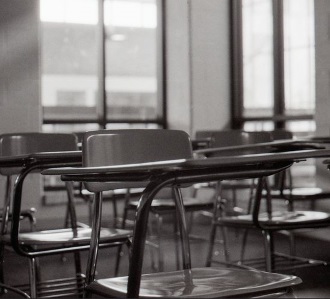
College is popularly held as a gateway to the middle class, an inexorable ticket to a higher standard of living, and something that every young person should be steered toward and encouraged to do. But what if some students shouldn’t be pressured to undertake higher education?
At The Chronicle of Higher Education, James Lang, a professor of English at Assumption College, cites a new book, Moving Up Without Losing Your Way: The Ethical Costs of Upward Mobility, by Jennifer Morton. In that book, he says, the author “explores the ethical dilemmas that arise particularly for low-income, nonwhite, first-generation college students as they struggle to balance home-life pressures with higher education.”
The crux of that research, Lang notes, is that “every major choice we make to maximize a good might detract from the quality or quantity of other potential goods in our lives.”
Lang shares the story of one college-goer, a young woman who seemed like a promising student yet who nonetheless began to falter early in the semester. The professor discovered that his student was juggling a host of responsibilities at home, such as caring for a sibling on a daily basis. Eventually, though she was committed to trying, the student dropped out.
This experience, and Morton’s book, have caused Lang to consider that it may not be the best policy to urge “strivers” to pursue education above all else:
We tell students that education will be their ticket to a better life, that they have to put their education over their lives outside of college, that it will all be worth it in the end. And that may well be true in terms of their future income and career pathway. But as we urge them to prioritize education, we can easily lose sight of the fact that they may well be doing permanent damage to relationships that have shaped their entire lives until their arrival on our doorstep.
“If she is to succeed in college,” Morton writes of a typical striver, “she will have to learn to say no to those for whom she cares.” The act of saying no to family and friends carries deep consequences not only for a student’s relationships but also for her own identity. After all, we are formed in our communities, large and small. “A loss or weakening of those relationships,” Morton writes, “is not only a loss of something that matters to me but a threat to my sense of identity.”
No longer firmly grounded in this family, this community, this place, now they are people who have left those connections behind to pursue something else. When they return, they cannot fold easily back into their old selves. Their education is still in a nascent stage, but the damage to their relationships is in full form.
The issue is multifaceted, Lang writes; one must also consider the effect strivers have on the families they leave behind. “The students with the talent, intellect, and ambition to improve their lot through a college education are likely to be the ones who help their families and communities to thrive. When they are pulled from their homes and neighborhoods, they leave behind gaping holes.”
IMAGE: Don Harder / Flickr.com
Like The College Fix on Facebook / Follow us on Twitter




Add to the Discussion